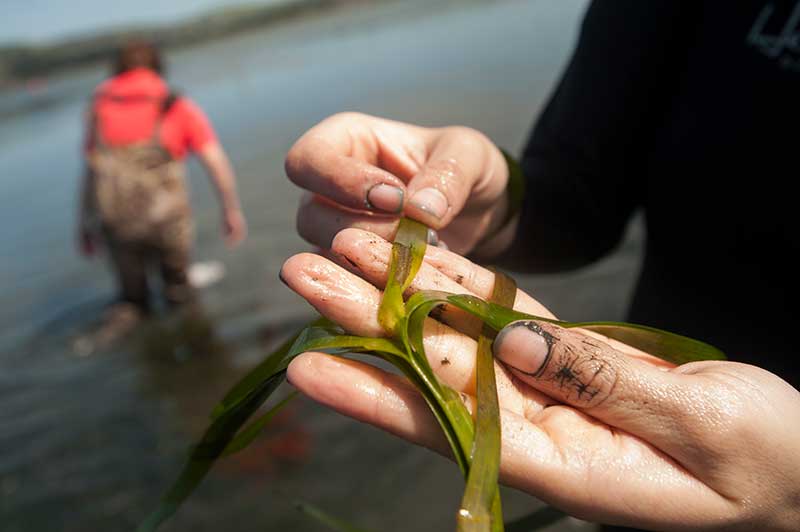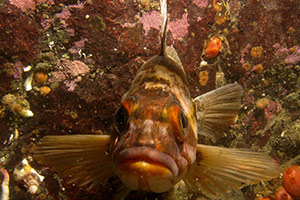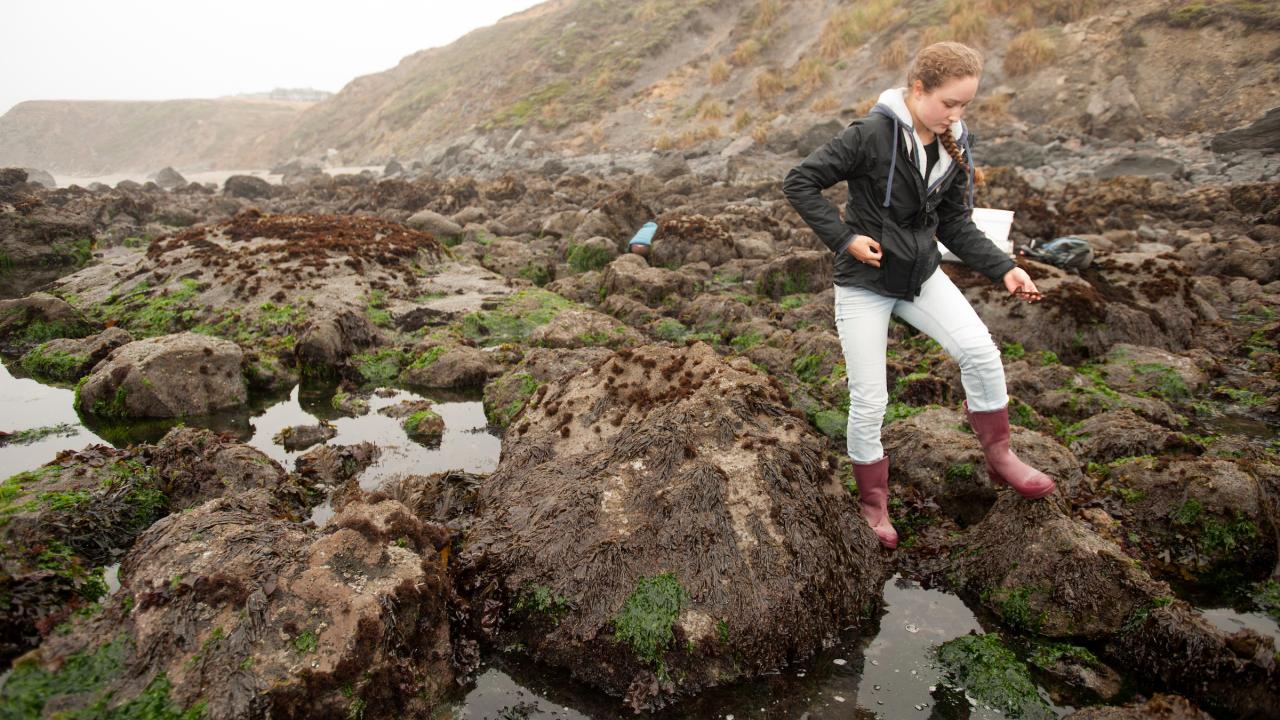Hi, we’d like to tell you about our experiences as marine and coastal science majors. Just follow our conversation to read the whole story.
Brittany: I was a second-year animal science major and Megan a second-year wildlife, fish and conservation biology major at UC Davis when the new marine and coastal science major was introduced in winter 2014.
I had been considering switching majors to marine ecology in the biological sciences major but found the new marine and coastal science major with a focus area in marine environmental chemistry more closely matched my interests and professional goals.
Megan: I chose my original major because of an interest in fisheries and marine organisms and felt the new major was a better fit. I chose the marine ecology and organismal biology as an focus area because of my love for interspecies relationships and an interest in studying marine protected areas. In particular, I was interested in the use and effectiveness of marine protected areas on “shielding” floral and faunal species and their ecosystems/habitats from the harmful effects of climate change.
Brittany: As for me, I wanted to study human-made disturbances like pollution and climate change and their effects on the world’s oceans.
Freedom in marine and coastal science major

Megan and Brittany: We loved that the new major gave us significant freedom to choose classes that we were interested in.
The different emphases have varying course loads and prepare students for countless postgraduate options. Peer advisors, faculty advisors and staff advisors in each college help undergraduate students decide what emphasis will best fit their goals, dreams and ambitions.
Our advisors and professors were all extremely helpful in choosing classes and finding internships as well. We could see, firsthand, that they genuinely cared about the well-being and success of their students.
Bodega Marine Lab is ‘incredible resource’
Megan and Brittany: Additionally, UC Davis has an incredible resource in its Bodega Marine Laboratory, located on California’s north coast about 70 miles north of San Francisco.
The summer after our third year, we completed a required six-week program at the UC Davis laboratory. The program couples marine science classes with student-run research projects to fulfill a requirement for the major. We received valuable hands-on experience.
We can both honestly say this coastal experience was our favorite summer at UC Davis.
‘Most academically beneficial experience’
4 Focus Areas in the Major
Marine and coastal science — coastal environmental processes: The coastal environmental processes emphasis concentrates on environments and systems in the coastal zone and the strong physical-biological connection.
Marine and coastal science — marine environmental chemistry: The marine environmental chemistry emphasis spotlights major themes in marine chemistry, geochemistry, the carbon cycle, and contaminant fate and transport.
Marine and coastal science — marine ecology and organismal biology: Students in this major concentrate on physiological adaptations to the marine environment and the biology of marine species from the molecular level to entire populations.
Marine and coastal science — oceans and the earth system: Learn about our changing oceans in the context of earth-system history, including climate change, paleoceanography, ecological shifts, conservation and marine policy.
Brittany: Not only was the summer program the most academically beneficial experience I had at UC Davis — making valuable connections, assessing my own interests, and gaining research experience — but it was also a lot of fun and resulted in lifelong friendships.
Megan, why do you think other students might find the Bodega program useful?
Megan: I felt that the experience was challenging and yet helped students who are unsure of their path in marine and coastal science find their focus.
It is the time to experiment and learn how to complete valuable research and test your abilities in communicating your results to others. Some would argue that is the most important part of research.
I completed my research project on marine protected area effectiveness at Bodega and landed a 20-week internship with the Marine Conservation Institute.
Brittany: I did research on the effects of zinc sunscreens on invertebrates and continued similar research in graduate school at Cal Poly San Luis Obispo in the fall of 2016.
Pre-college Summer Class

Check out the Coastal and Marine Sciences Pre-college Program. Students spend the first week on the UC Davis campus learning about plants, animals and processes. In the second, they travel to Bodega Marine Lab to explore one of the world’s most biologically rich coastal and marine environments. This experience may help you choose your major.
Megan and Brittany: Bodega Marine Laboratory is a great resource and experience for anyone pursuing an academic or research career in marine science. Overall, this major gave us a solid background of both knowledge and experience to continue our education and pursue a graduate degree in the marine sciences field.
We think this major would be a great choice for anyone interested in studying the ocean and coastal ecosystems. Marine and coastal science majors can look forward to a mix of interesting and informative classes that provide relevant information and skills, and the backing of an incredibly supportive academic community both on the UC Davis campus and at the UC Davis Bodega Marine Lab.
Brittany Cunningham and Megan Hill were marine and coastal science graduates in the UC Davis Class of 2016. Brittany is in graduate school at Cal Poly San Luis Obispo and Megan is working as a research associate at REVA Medical Inc., which is headquartered in San Diego.
